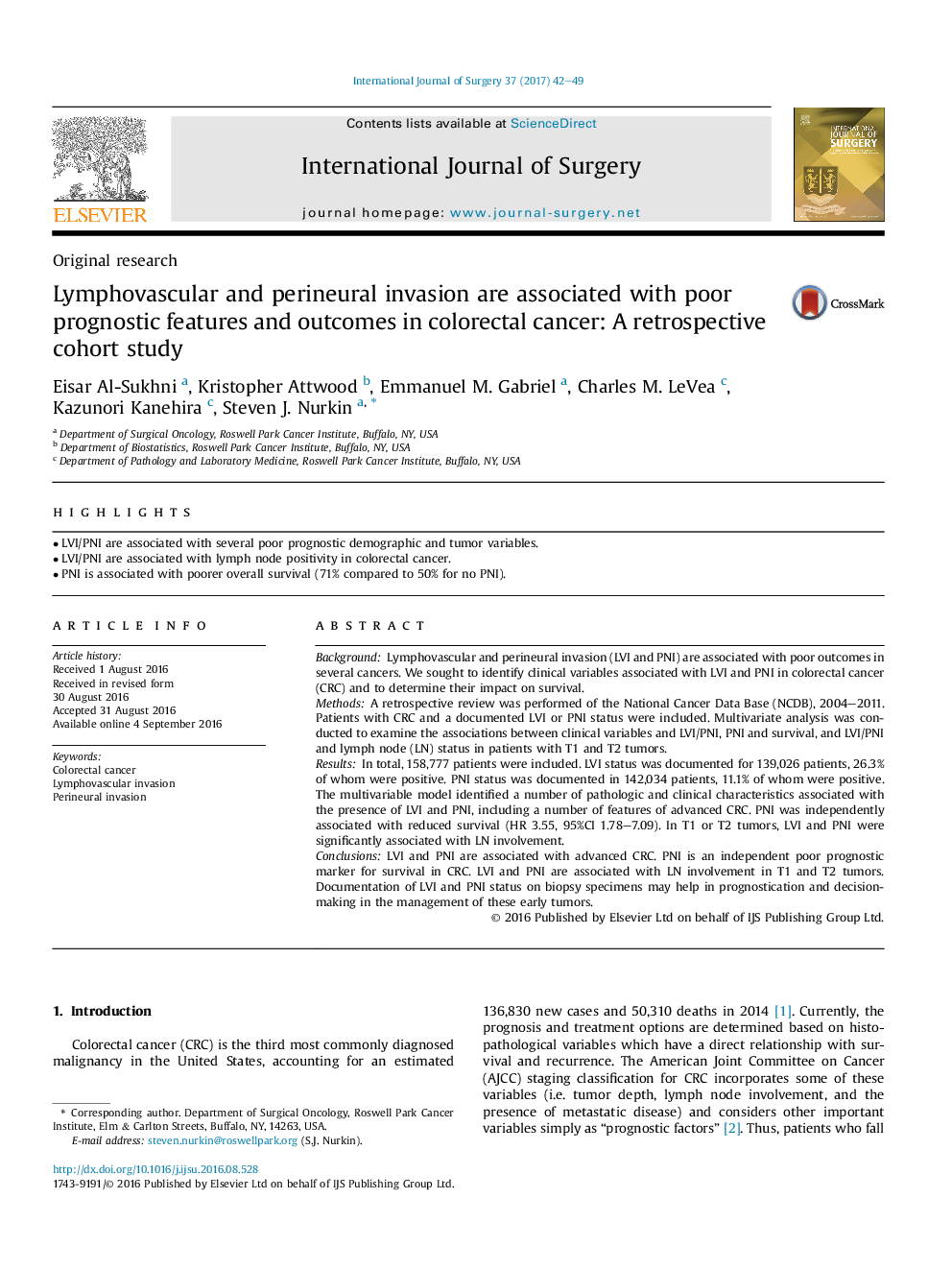| Article ID | Journal | Published Year | Pages | File Type |
|---|---|---|---|---|
| 5732411 | International Journal of Surgery | 2017 | 8 Pages |
â¢LVI/PNI are associated with several poor prognostic demographic and tumor variables.â¢LVI/PNI are associated with lymph node positivity in colorectal cancer.â¢PNI is associated with poorer overall survival (71% compared to 50% for no PNI).
BackgroundLymphovascular and perineural invasion (LVI and PNI) are associated with poor outcomes in several cancers. We sought to identify clinical variables associated with LVI and PNI in colorectal cancer (CRC) and to determine their impact on survival.MethodsA retrospective review was performed of the National Cancer Data Base (NCDB), 2004-2011. Patients with CRC and a documented LVI or PNI status were included. Multivariate analysis was conducted to examine the associations between clinical variables and LVI/PNI, PNI and survival, and LVI/PNI and lymph node (LN) status in patients with T1 and T2 tumors.ResultsIn total, 158,777 patients were included. LVI status was documented for 139,026 patients, 26.3% of whom were positive. PNI status was documented in 142,034 patients, 11.1% of whom were positive. The multivariable model identified a number of pathologic and clinical characteristics associated with the presence of LVI and PNI, including a number of features of advanced CRC. PNI was independently associated with reduced survival (HR 3.55, 95%CI 1.78-7.09). In T1 or T2 tumors, LVI and PNI were significantly associated with LN involvement.ConclusionsLVI and PNI are associated with advanced CRC. PNI is an independent poor prognostic marker for survival in CRC. LVI and PNI are associated with LN involvement in T1 and T2 tumors. Documentation of LVI and PNI status on biopsy specimens may help in prognostication and decision-making in the management of these early tumors.
